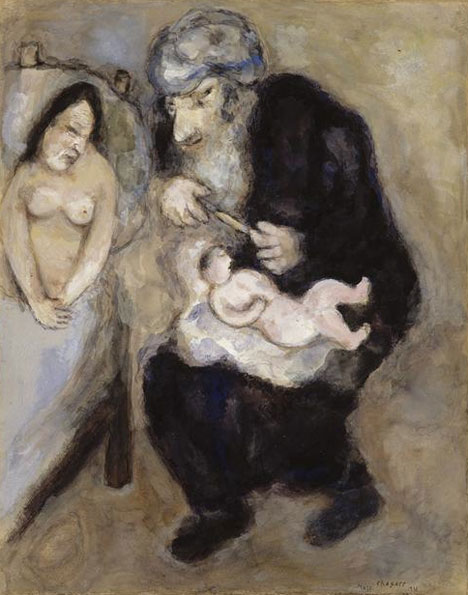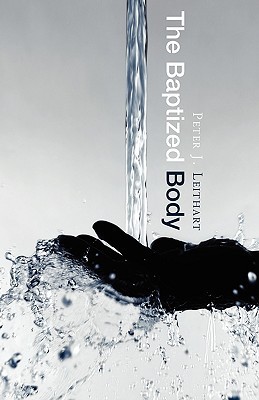Sep
12
2013

And John bore witness: “I saw the Spirit descend from heaven like a dove, and it remained upon him.” (John 1:32)
“Efficacious paedobaptism is maintained at the tragic cost of the efficacious work of the Spirit…”
Chapter 1 continued
See the Baptism links page for all articles in this series.
Dr Leithart says that the sign of baptism is not merely symbolic of a personal encounter with God, but is actually the personal encounter. I concluded, based on the process of maturity found throughout Scripture, that although his observation is correct as far as it goes, what he has observed goes even deeper. “The sign” is not merely the baptism, but actually includes the human being in personal relationship with God. The one being baptized is the sign, and the sign is ethical maturity.
Continue reading
Comments Off | tags: Abraham, Baptism, Covenant Theology, Federal Vision, Jonah, Peter Leithart | posted in Bible Matrix, Biblical Theology
Sep
5
2013

“The promise and the law are the two goats on the Day of Atonement.”
The Blessings of Abraham and the Curses of Moses
This is the fourth cycle within the “Numbers” section of Galatians. Since the next section concerns the Christians’ identity as sons of Abraham (Succession), this cycle seems to correspond to New Covenant Sanctions. I’ll take a risk and outline the epistle as I see it so far, so you can keep a handle on it. (The headings for the sections we have already covered are links to the relevant blog posts.)
Paul’s Numbers:
Sanctions
Succession
Paul’s Deuteronomy
Paul’s Joshua
Paul’s Judges
Continue reading
Comments Off | tags: Abraham, Baptism, Circumcision, Covenant curse, Covenant Theology, Galatians, Literary Structure, Paul | posted in Bible Matrix, Biblical Theology, Reading the Bible in 3D, The Last Days
Sep
1
2013

“Leithart’s real problem is that one can tell the difference between a circumcised boy and an uncircumcised one, but a sprinkled baby looks no different to an unsprinkled one.”
Chapter 1 continued
See the Baptism links page for all articles in this series.
Sacraments Are Not Signs, Means Of Grace, Or Symbols
In the next section, Dr Leithart deals with three errors:
1) The tendency to treat signs rationalistically, as nothing more than a means of communicating ideas from one mind to another mind; and,
2) Talking about sacraments as “means” tend to mechanize them, turning the sacraments into machines that deliver grace rather than moments of personal encounter with the living God.
3) Symbolic exchanges (such as language) are not the “real relationship,” which is invisible and could occur just as well without them.
Continue reading
2 comments | tags: Abraham, AD70, Baptism, Circumcision, Pentecost, Peter Leithart, Reformation | posted in Biblical Theology, The Last Days
Aug
28
2013

“…if everyone in a culture is baptized, and that baptism is simply an ‘efficacious call,’ then everyone is a grub with great expectations, and there is no celebration of butterflies.”
Chapter 1 continued
See the Baptism links page for all articles in this series.
Do Baptists talk to their babies?
The question of infant faith is not: “Are infants capable of receiving this jolt of divine power?” The question is: “Can infants respond to other persons? Do infants have personal relations?”
Continue reading
4 comments | tags: Baptism, Peter Leithart | posted in Bible Matrix, Biblical Theology
Aug
25
2013

“At every paedobaptism,
earthly kingdom trumps heavenly priesthood,
and the blood of the prophet Abel cries from the ground.”
Chapter 1 continued
See the Baptism links page for all articles in this series.
The Social Contract
Dr Leithart continues by pining for the Middle Ages, the days when baptism defined both religious and civil membership for every member of society, both great and small, men and women, adults and infants. He states that the Anabaptist idea that baptism was a purely religious rite was “novel and revolutionary.” Perhaps it was novel in the Middle Ages, but it wasn’t new. We must ask, what inspired it? The answer is not history or tradition but the Scriptures. I have come to understand the relationship between Church and State from other writings of Jordan and Leithart, so I don’t understand Leithart’s failure to apply those definitions here.
Continue reading
12 comments | tags: Baptism, Church History, Peter Leithart | posted in Biblical Theology
Aug
23
2013

“…when mud is slung, few mud-slingers can rival Reformed mud-slingers.” (p. viii)
In my experience, arguing with a paedobaptist is like arguing with an evolutionist. The assumption that paedobaptism is biblical is the lens through which everything gets interpreted as evidence. As one paedobaptist friend put it, “I like to argue from a position of truth.” But if the eye (or its lens) is full of darkness, so is the entire body, especially the baptized one.
Continue reading
3 comments | tags: Baptism, Peter Leithart | posted in Biblical Theology
Aug
20
2013
 Introduction
Introduction
Recently, I’ve been re-reading Rich Lusk’s Paedofaith: A Primer on the Mystery of Infant Salvation and a Handbook for Covenant Parents. This reading was with the intention of blogging through it and dealing with the main points, as is the helpful practice of Doug Wilson with certain books.
The problem is that Lusk makes some enormous, illogical and unbiblical assumptions in his preface and introduction, and these assumptions are based on arguments found elsewhere.
Continue reading
Comments Off | tags: Baptism, Federal Vision, Peter Leithart, Rich Lusk | posted in Biblical Theology
Aug
19
2013

We are still in the Covenant Ethics section of Galatians. Not having looked too far ahead, I’m not yet certain of the overall structure of this section. So until this becomes clear we will stick with the secondary cycles. I have no doubt that the structure will become clear in hindsight, because it always does.
Continue reading
Comments Off | tags: Abraham, Baptism, Circumcision, Covenant Theology, Fractals, Galatians, Paul | posted in Bible Matrix, Biblical Theology, The Last Days
Aug
10
2013

Paul’s Numbers
We have arrived at what appears to be the center of the epistle, which would be Testing (in matrix terms), the “opening” of the Law (Ethics 2 in Covenant terms) and “purification” (in sacrificial terms). And, being at the centre of the book, this part is the Apostle’s main argument, or thesis. Just as Christ and the coming of the kingdom in His sending of the Spirit are found at the centre of Covenant history, so the transformation by fire of the Levitical priesthood into a fragrant Bride are at the centre of Galatians.
Continue reading
Comments Off | tags: Baptism, Galatians, Numbers, Paul, Ray Sutton | posted in Bible Matrix, Biblical Theology
Aug
3
2013
 Abraham’s Bookends
Abraham’s Bookends
In his book Why Baptize Babies?, Mark Horne writes:
The apostle Peter makes it clear that God’s Covenant still involves the promise to our children:
For the promise is for you and your children and for all who are far off, everyone whom the Lord our God calls to himself.” (Acts 2:39) We who now profess Christ are among those who are “far off,” whom the Lord has called to himself. Just like those to whom Peter first preached, the promise is not only for us but for our children as well. (p. 23)
So much that has been written about baptism is nebulous and confused. My friend Mark’s short book, however, is an excellent summary of this doctrine. Having his points honed into silver bullets makes them easier to discern, and easier to deflect!
Continue reading
3 comments | tags: Acts, Baptism, Covenant Theology, Luke Welch, Mark Horne | posted in Biblical Theology, Quotes


































